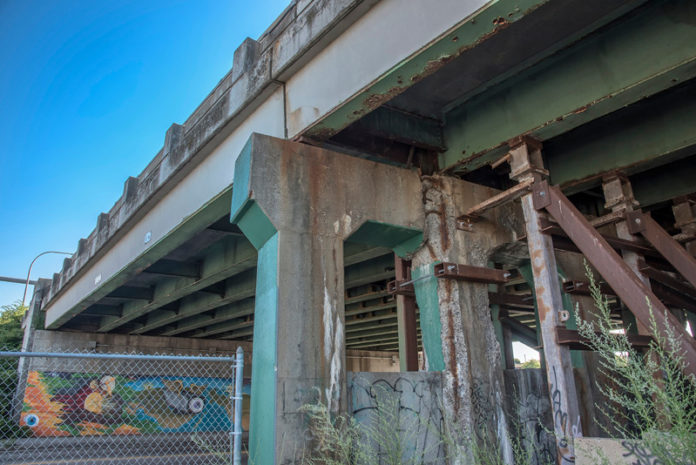Businesses know that investment is the prelude to future profitability. Without it, the enterprise withers and dies sooner or later.
Much of the resistance to Gov. Gina M. Raimondo's truck-tolling plan to invest in our roads and bridges is based on the assumption that future toll revenue will support bond issuance today. Of course, there is little appeal to the state taking on more debt.
And yet that is exactly what the state should do.
The anti-bonding line of reasoning – and really, there is little argument that the state's transportation infrastructure desperately needs investment – says let's invest by wringing more savings out of state government, or by using toll revenue or other sources on a pay-as-you-go basis.
The first option ignores a decade of personnel cut after personnel cut on the state and local levels, to the point that services in many cases have reached Soviet Union-era efficiency. There are still too many regulations for efficient governance. But on the people front, there just isn't that much room for systemic cuts.
And while pay-as-you-go sounds like a prudent, step-by-step approach, it is difficult to imagine that the state will be able to make a dent on the massive nature of the project backlog in such small increments. Even if tolls are not the revenue source – increasing gasoline and diesel taxes and other fees should be part of the mix, as could be federal grants – Rhode Island needs a big infusion of money to get the ball rolling.
And distasteful as taking on more public debt is, that tool must be used if the state is to be able to accomplish what needs to be done. •













Perhaps the “anti-bonding line of reasoning” comes from the fact that Rhode Island is up to it’s neck in bond debt already and there is very little information available as to the progress of their payoff. Every general election, Rhode Islanders open up their purse to many new bond financed projects, some very admirable yet, nonetheless adding to the debt load and harming the state’s credit standing.
It also should be noted that the road and bridge situation has more to do with inefficiency, mismanagement, cost overruns, design errors and general waste than simply “not spending enough” . To pass another bond, hand the DOT another pile of money and have the department bumble on the way it always has is foolish. Let’s overhaul the department, combine it with the Turnpike and Bridge authority into one efficient operation. (Really, does the nation’s smallest state need two separate road authorities?) Then look at financing for the future without going to the trough of the bond seller.
Remember also that Rhode Island’s close state lines make it easy to push commerce across the border and repel new business when we toll, or tack on more fees and taxes.